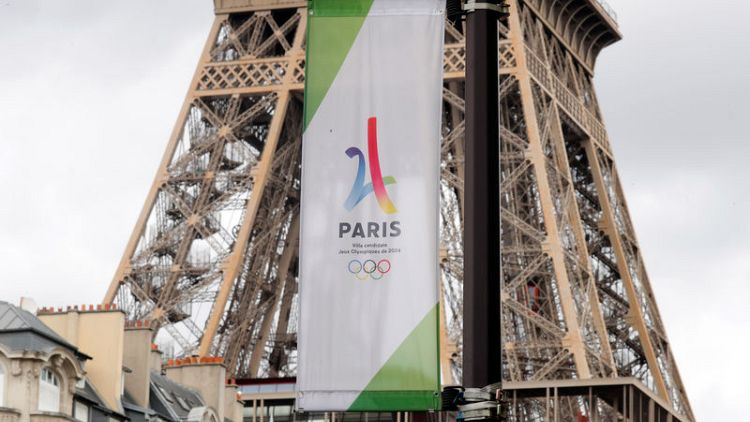By Karolos Grohmann
LAUSANNE, Switzerland (Reuters) - Weightlifting will be given the green light for inclusion in the Paris 2024 Olympics by the The International Olympic Committee (IOC) once an anti-doping agreement is in place, ending 18 months of uncertainty for the sport's future in the Games.
The IOC said in 2017 that weightlifting had to reform its anti-doping procedures or risk missing out on the Paris Olympics after scores of doping cases in the sport in the past decade alone had tarnished its image as well as the Olympics.
The IOC said at the time weightlifting had a 'provisional inclusion' for Paris pending far-reaching doping reforms.
But on Tuesday the Olympic body said it was satisfied with progress in that respect, with an agreement pending between the International Testing Agency (ITA) and the International Weightlifting Federation (IWF).
"The IOC Executive Board reviewed the position and the positive steps in the past 18 months to strengthen the anti-doing programme," IOC spokesman Mark Adams told a news conference.
"The IOC decided to lift the status 'provisional inclusion' of the Paris 2024 Olympic Games subject to conditions."
The main condition was the agreement with the ITA which should take place soon.
"This is expected to happen in a matter of days," IOC Sports Director Kit McConnell told Reuters.
He said once that was completed, the provisional tag would be removed and the sport would be monitored like every other Olympic sport until the Games in Paris.
As part of a number of changes in the past 18 months, the IWF is effectively allowing Russia, Kazakhstan, Azerbaijan, Armenia and Belarus only two places each at the Tokyo 2020 Games next year.
The new rules state that any nation with 20 or more doping violations from 2008 to 2020 will be allowed only one man and one woman at the Games.
Among other changes, the IWF has made Olympic qualifying an individual rather than a team-based system, which will lead to more testing of prospective Olympic lifters.
Athletes wanting to be in Tokyo will have to compete six times during the 18-month qualifying period, making it impossible for them to stay away from competition for long periods, which has happened in the past.
(Reporting by Karolos Grohmann; Editing by Ken Ferris)
